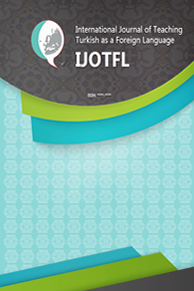
Uluslararası Yabancı Dil Olarak Türkçe Öğretimi Dergisi
Yazarlar: Kenan GÜNEŞ
Konular:Eğitim, Bilimsel Disiplinler
Anahtar Kelimeler:Teaching Turkish As a Foreign Language,Local Dialects,TTAFL Cirriculum
Özet: Action Oriented Aproach adopted in terms of the politics of European Council characterises the foreign language leanrners as the social actors and regards them as the speakers of the target language rather than the individuals who learn the descriptive data of it in line with Sociolinguistics. It is cited in the Common European Framework of Reference for Languages published in terms of the politics of the Council that the foreign language learners also need to comply with the differences of articulation and form that are observed in the other layers of the society in which the target language is spoken apart from the standart language by means of using their sociolinguistic talents. Since the local dialects that are observed apart from the standart language are available in the thes ocio-cultural structure of the society, especially when the affluent linguistic differences depending on geographical conditions are taken into account, the notion of the inclusion of the local dialects into the teaching Turkish as a foreign language gains importance. There are seven geographical regions in our country and each region has articulation and form differences including the differences in itself as well. That’s why it has a big importance to emphasise the issues of including the local dialects systematically into teaching process of the Turkish as a foreign language and to setting up an interrelating assesment and evaluation system.